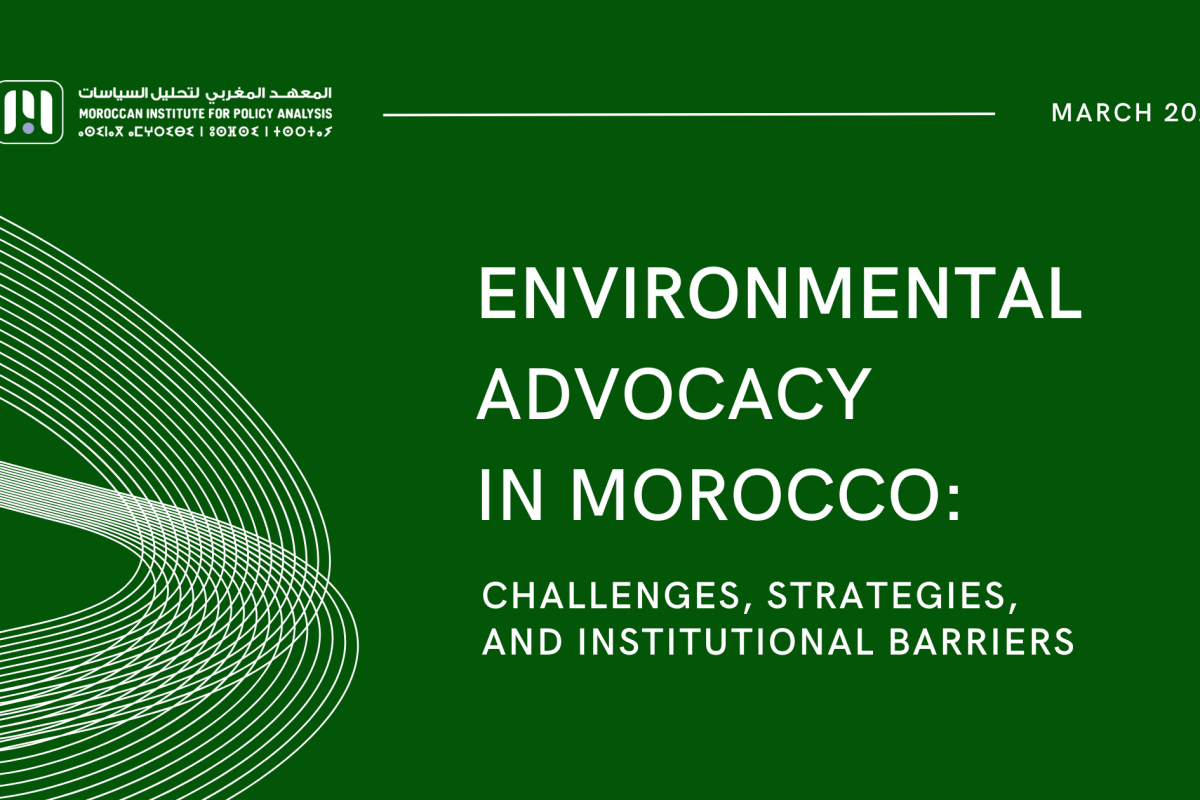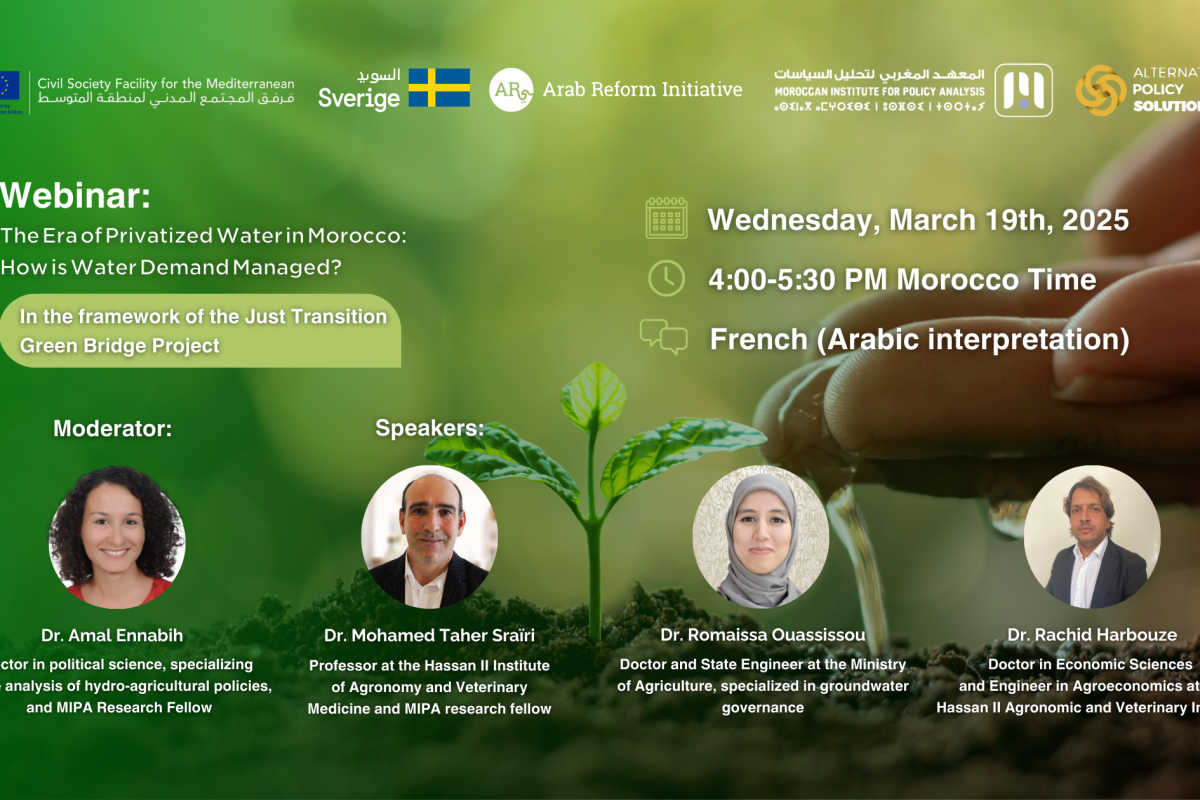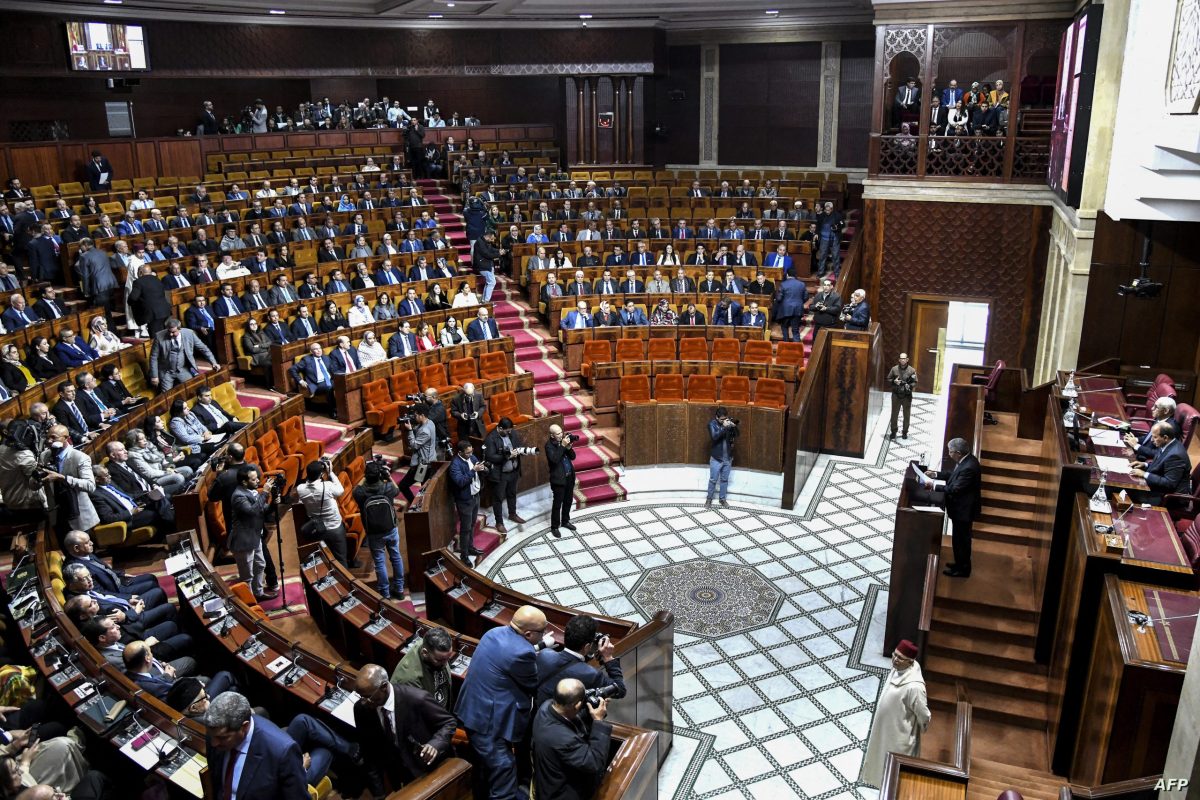[vc_row][vc_column][vc_column_text]
Activists and decision makers can learn from their previous mistakes to push for genuine political and economic reforms
Download article
Introduction
Activists in Morocco will soon mark the ninth anniversary of the launch of 2011’s February 20th Movement. Amid a backdrop of regional upheaval, the protest movement exerted pressure on the regime and secured partial political reforms. Yet today the movement behind the protests has faded, and what remains is more nostalgia than organization. Indeed, many activists associated with the movement have been co-opted by the regime or have withdrawn from politics altogether.
Yet while the February 20th Movement has come and gone, its spirit remains. Protests in Morocco are again on the rise; ordinary Moroccans appear to be increasingly willing to take to the street, even as traditional political organizations and actors are becoming more unpopular and distrusted.
At first glance, this situation may appear to be a challenge for democratization in Morocco. A closer look, however, also reveals an opportunity to capture the energy of renewed street protests and channel it into a concrete policy agenda that reflects a sort of ‘minimum program’ to which all major political currents can agree.
This current moment also provides an opportunity for activists and decision makers alike to learn from the following mistakes of the past 20 years: firstly, a top-down approach to development and securitization which has only fueled street protest; secondly, the inability of these protest movements to turn street pressure into actionable policy and build a durable, sustainable organization; thirdly, the ossification of Morocco’s political parties, which left them unprepared to constructively respond to protests in 2011; and finally, the weakness of traditional political actors which renders both their discourse and programs increasingly out of touch with the concerns of ordinary Moroccans.
The Top-Down Approach Does Not Work
In the past two decades, Morocco has launched myriad initiatives intended to bolster human and economic development. Among the most prominent initiatives are the so-called “mega projects,” such as the massive new portand economic free-zone in Tangier, a high-speed rail linking the major coastal cities, and an improved and expanded autoroute network—not to mention investments designed to attract tourists and foreign capital, like the development of the Bouregreg Valley between Rabat and Sale.
On the social level, Morocco launched the National Initiative for Human Development in 2005, which has pouredalmost 43 billion MAD into projects across the kingdom since its inception. More recently, the king appointed a new commission designed to propose a new development model for Morocco.
Yet these initiatives and others demonstrate that Morocco’s approach to development is top-heavy. This is also reflected in the kingdom’s governance model, in which elected officials often have less power than their unelected peers, from the local to the national level, something that seems unlikely to change even as “advanced regionalization” progresses.
As a consequence of this top-down approach, and despite two decades of promises and projects, Morocco’s ranking on the United Nations’ Human Development Index has barely budged, and rural and marginalized regions continue to suffer from chronic underdevelopment. Meanwhile, Moroccans have grown frustrated with decades of promises but little progress and are increasingly willing to take to the streets to express this.
The 2011 uprisings across the MENA region found an echo in Morocco in part because of the failure of this centralized and top-down model to deliver on its promises. The fact that protestors’ demands have shifted from calls for political reforms in 2011 to calls for hospitals, schools, and jobs today illustrates that, for many Moroccans, equitable socioeconomic development remains elusive.
Indeed, in recent years Moroccans have taken to the street in rising numbers, and even more have engaged in economic boycotts, such as the long-running campaign against Sidi Ali, Danone Centrale, and Afriquia. Meanwhile, recent survey data indicates that nearly half of all Moroccans favor rapid political change – the highest in the MENA region.
While the newly-formed commission for the new development model is still working on its recommendations, whether it can deliver the kind of deep change for which many Moroccans are clamoring remains unknown. More broadly, temporary commissions like this one might be considered a sort of compensatory mechanism, a way to buy time while waiting for protests to abate. Yet such a “politics of ignoring,” or waiting, combined with a heavy-handed security approach to protests—which is itself another form of top-down control—is likely to only increase resentment and fuel further protests.
From Protest to Policy
Yet even as protests continue to grow, whether they lead to the deep reforms Morocco needs is far from certain. Spontaneous protest movements, often organized hastily through social media, frequently lack clear organizational structures or specific, shared demands, which hinders their ability to sustain pressure long-term and ultimately succeed.
The shortcomings of the February 20th Movement illustrate this, and provide activists with an opportunity to learn how to better capitalize on the energy of the street and turn it into an organized and sustained movement united around a shared set of demands. For instance, many participants in the February 20th Movement had never worked together before and so were forced to negotiate together to decide on a common set of goals as the protest movement was unfolding.
This led to divisions among protesters, both over basic issues like protest tactics and more fundamental ones, like the nature of political change they desired and their priorities. In the end, this lack of a working consensus or common set of demands prevented the movement from keeping pressure on authorities to implement promised reforms.
Today, protesters appear to have settled on a common set of demands revolving around the issue of social justice, leaving it to Morocco’s politicians and decision makers to set aside their differences and work toward achieving them. Indeed, demands for concrete investments in human capital and infrastructure, alongside calls for the release of activists and journalists in jail and an end to corruption, have spread across the kingdom, transcending partisan politics and ideology. These demands are perhaps most prominently associated with the Hirak Rif movement; while many of its leaders have been imprisoned and protests have quieted down, the legitimacy and popularity of its demands remain high, as evidenced by the numerous other protest movements that have sprung up in recent years with similar demands.
Thus, while it is unlikely that the major political currents operating outside formal institutions can agree on more fundamental questions about the nature of the political change they desire, they could agree to prioritize the issues that have proven to mobilize ordinary Moroccans in the most in recent years—namely education, healthcare, infrastructure, jobs, and freedom of expression. A united array of political forces would have a higher chance of pushing through these needed reforms while simultaneously maintaining pressure on authorities to follow through with their promises.
Reviving Political Parties and Organizations
While having a clear set of goals that transcend political affiliations and ideology is important for protest movements, street protest is not enough. Turning protest into policy is of course a challenge that all protest movements face. For this to happen, the support of strong and independent political parties and civil society organizations (CSOs) is required. Yet for the moment, at least, Morocco’s traditional political actors do not seem up to the task, nor do they enjoy the necessary broad-based support to be credible brokers between the state and citizens.
However, the challenge is not only to strengthen the organizational capacity of Moroccan political parties and CSOs but also to strengthen their credibility in the eyes of citizens. Empirical evidence from Morocco and elsewhere suggests that external aid designed to strengthen political parties and civil society does not necessarily make them stronger democratic actors, though it may bolster their professionalism.
If protest alone is not enough and Morocco’s political parties and CSOs are unequipped and too unpopular to credibly translate citizens’ demands into an actionable program, what is the path forward?
One answer lies in the multitudes of young Moroccans with energy and ideas who are met with contempt and closed doors by traditional political organizations. Many Moroccans and especially Moroccan youth view political parties and organizations simply as vehicles for personal enrichment. Improving the internal democracy and incentive structures of these political parties and CSOs can help make more room for young and critical voices that have less of a vested interest in preserving the status quo.
A Change in the Rhetoric and Strategies
As mentioned at the outset, while traditional political actors like unions and political parties in Morocco are losing their credibility, Moroccans are today are taking to the streets in greater numbers, which indicates not only high levels of dissatisfaction among ordinary Moroccans but also an increased political awareness and a corresponding willingness to act. There is, then, an opportunity for Morocco’s pro-democracy activists to adapt both their rhetoric and their strategies to respond to this growing engagement. Indeed, political parties and CSOs might consider adjusting their current rhetoric, which tends to reinforce their image as out-of-touch opportunists. Elitist discourse that speaks about “a new model of development” or a “democratic transition” that guarantees “parliamentary monarchy” is simply not accessible to many ordinary Moroccans and seems disconnected from their everyday struggles to make a living.
Yet the social and economic demands that are at the heart of the new wave of protests in Morocco are also political demands, whether protesters recognize it or not. Social and economic demands are inextricably linked to issues of democracy and human rights—to the systems of power that allocate resources and opportunities. Indeed, the issue is not a lack of support for democracy in Morocco, as several surveys and other qualitative evidence demonstrate. Instead, the challenge is to link seemingly-abstract calls for political and institutional reforms to the concrete issues of uneven socioeconomic development and reduced freedom of expression that animate protests today.
Towards a New Social Contract
Strengthening political parties and CSOs, of course, is not sufficient. Instead, what Moroccans’ renewed interest in politics suggests is a deeper desire to renegotiate the social contract. At the heart of calls for hospitals and roads and freedom of expression is the sense that the basic bargain between citizens and their leaders is no longer tenable. Absent deeper reforms to incentive structures that allow opportunism to prevail and political organizations to ossify, any rhetorical shift will likely be met with cynicism.
However, a shift in discourse and incentive structures, accompanied by an ethos of cooperation that seeks to rise above partisan politics and contributes to a broader renegotiation of the social contract, can help Morocco break loose from its current crisis. Protesters have provided the energy and the ideas; it is now up to Morocco’s political actors to meet this with courage, leadership, and meaningful change.
Conclusion
After nine years, citizens in Morocco and across the MENA region are taking to the streets again. While the first wave of the Arab uprisings led to divergent outcomes—slow democratization in Tunisia, but also counter-revolutions, protracted civil wars, and foreign interventions—the long-term effects of the 2011 uprisings are only now beginning to be revealed.
Indeed, in Morocco and elsewhere, the uprisings altered ordinary people’s perceptions of what is politically possible and spurred a renewed interest in politics, protest, and democratic change. This interest has only grown since then, as promised reforms have failed to materialize and authorities have increasingly relied on a security approach to deal with protests. Morocco is at a crossroads, and the status quo is unsustainable. What comes next depends on how the regime responds to the country’s economic and social challenges and how they channel renewed interest in politics into meaningful change.
If the favored top-down approach to development continues, protests over regional inequalities and decreasing freedoms will likely continue. As long as the root causes of protest remain unaddressed, though, a heavy-handed security approach to protests will likely do little to quiet the streets in the long run.
The alternative is taking genuine steps to democratize and beginning to recognize and implement the demands of citizens. The opportunity to take such a step may come this summer when the new development commission is expected to release its recommendations. If this is the case, 2020 may mark the year when Morocco begins charting a course forward toward a more inclusive future. If not, protests and inequality will likely continue into the new decade.
[/vc_column_text][/vc_column][/vc_row]
Patrick S. Snyder
Patrick Snyder is a PhD candidate in Political Science at the University of Minnesota. His research focuses on freedom of expression, social movements, and resistance in non-democracies, with a regional focus on Middle East and North Africa. He is currently in Morocco for long-term fieldwork related to his dissertation project.


